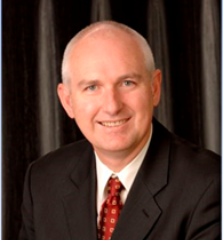Blogging QC says bloggers should say who pays
Article by Jock Anderson
Clive Elliott KC
Regarded as an intellectual property law pioneer, Natal-born Clive Elliott KC – recreational gorilla tracker, blogger and self-taught impressionist-style painter – is keen to argue the right to be forgotten.
He will challenge District Court Judge David Harvey, the judiciary’s “go-to guy” on information technology law, who champions the “right to be known” camp.
The crux of their discussion is the celebrated Google Spain SL, Google Inc v Agencia Espanola de Proteccion de Datos (AEPD), Mario Costeja Gonzales case, in which the International Court of Justice directed Google to remove minor historic references which were embarrassing the Spanish businessman. (To be considered at the NZLS CLE Ltd seminar on Privacy and the Right to be Forgotten, 15 October in Auckland).
When Clive did his law degree in Durban in the 1970s, IP law barely existed. It was not taught and was not even a subject.
He came to grips with IP working for Unilever in South Africa, before coming to New Zealand in 1983 and spending 17 years with Baldwin Shelston Waters/Baldwins, rising to partner and head of litigation.
“While multinationals have always been involved in IP issues, there has been huge growth in the fields of copyright, privacy and confidentiality in 40 years.”
He went to the independent Bar in 2000 and was appointed Queen’s Counsel in 2013.
In his most challenging case to date he represented Kiwi businessman Carl Peterson, who was locked in an 11-year patent dispute with Australian company Lucas over a portable sawmill.
Mr Peterson, who claimed Lucas had copied his design and breached patent, won in the High Court, then lost in the Court of Appeal before the Supreme Court – in the first ruling of its kind – upheld his case in 2006 (Peterson Portable Sawing Systems Ltd (in liquidation) v Lucas [2006] NZSC 20).
[Unfortunately the case did not end there. Lucas did not give up and Mr Peterson – having earlier won a significant victory – was by now unable to afford counsel and acted for himself for several more years. The whole affair came at considerable cost to his business and personal life].
Clive is preparing to argue in the Court of Appeal on behalf of German insulation manufacturer Knauf, that Batts – as in Pink Batts – should be revoked as a trademark on the grounds Batts is a well-used generic term.
Knauf’s view is Batts is a description given to a type of insulation in a particular segment form, which is used generically around the world – except in New Zealand where it has registration.
About 12 years ago, and influenced by his painter mother, he began dabbling in oils, quietly developing an impressionist style in landscapes, figuratives and abstracts.
He painted with leading New Zealand impressionist Russell Hollings for two years and is influenced by his broad brush style.
“I’m trying to achieve a sense of energy in what I’m painting. That means leaving parts of the canvas empty to get the viewer’s eye to do the work and make connections without me telling the whole story.”
Clive recently had a successful exhibition at Auckland’s Crave Café and his paintings usually sell from $800 to $1,500.
“I leave the law behind when I’m painting – never the twain shall meet.”
“When I paint the rest of the world stops. Having a busy practice means I paint in bursts. Last year I didn’t paint for six months.”
He says blogging is a great way to keep up to date and keep his profile up.
“It can take a lot of time and is the new way of marketing. Air New Zealand, for example, have a team of people online commenting and putting Air New Zealand’s spin on debate.”
But blogging throws up contentious areas, including monitoring, regulation and independence.
“It is not always possible to know a source and if anyone monitors from within what is being said.”
“In the UK for example, celebrities are required by law to make disclosure when they endorse products. That’s not the case here.”
“People assume bloggers are independent but people will not necessarily know if someone is paying a blogger and feeding him material to promote their cause.”
“People need to know who is on the payroll. If a blogger is acting as an agent for someone or some view, that should be disclosed.”
He says election-time disclosures and connections around the Whale Oil blog and Dirty Politicsbook raise issues around the news media’s use of illegally obtained and hacked material.
“Who decides if there is a genuine public interest in hacked material being known?”
“While there is a public interest if unlawfulness is exposed, there is also another public interest in maintaining law and order and allowing people to communicate privately and in confidence with one another.”
Clive has served on numerous national and international IP bodies, including as president of the Intellectual Property Law Society of Australia and New Zealand and as convenor of the New Zealand Law Society’s Intellectual Property Law Committee.
Keen travellers, Clive and his wife trekked after gorillas in Uganda this year – “walking up to eight hours a day in the heat” – and plan a trip to India next year.
“We like to get out of the comfort zone.”
Jock Anderson has been writing and commenting on New Zealand lawyers and New Zealand’s courts for several decades. He also writes the weekly Caseload column for the New Zealand Herald. Contact Jock at jockanderson123@gmail.com.

